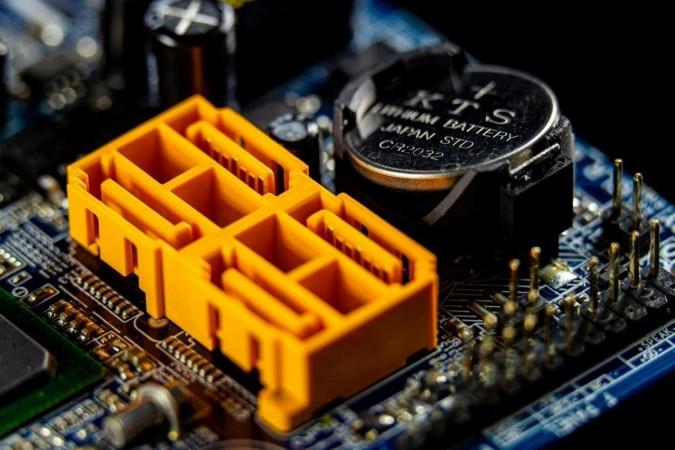
For more than a decade, India has positioned itself as one of the major – albeit quiet – players in the global battery manufacturing industry. While China dominates more than 70% of global markets in the production and sale of batteries, the growth of the Indian economy in this field has been notable, and is expected to expand by more than 20% in just under ten years. Today, few people doubt that batteries have become the cornerstone of the future's economy, driven by the use of sustainable resources in transportation, public utilities, and energy storage, extending to virtually all economic sectors. As such, the efficient production and storage of energy has become an arena involving unprecedented innovation, scale, and business dynamism. Competition is a natural expectation in this strategic area of business, but not all competition is made equal.
India's recent growth in this sector has primarily been powered by the country's robust private industry. Firms such as Amara Raja, Exide, Ola Electric, Reliance New Energy, and Tata Chemicals have not only proven their ability to provide reliable alternatives to those produced by global leaders of this industry; Indian research and development efforts have also pioneered new technologies. The production of lithium-ion to sodium-ion batteries supports India's domestic demand for electric vehicles, so much so that Indian manufacturers are also looking to capitalize on the ever-growing demand of export markets in Southeast Asia, Africa and even Europe. The government's Production Linked Incentive Scheme for Advanced Chemistry Cell manufacturing has acted as an outstanding catalyst, drawing in billions of rupees in private capital and incentivizing industrial innovation and production.
Beijing's advantage in battery production, the greatest competition to India's share of the global market, on the other hand, has been achieved through extensive state intervention and a monumental subsidies regime. This has been complemented by China's Belt and Road Initiative which has provided billions of dollars' worth of funding to partners in in Africa, South America, and Southeast Asia for companies under government control to acquire the critical minerals needed for the production of batteries.
India, in contrast, has prioritized industrial sovereignty by minimizing dependence on any single country for raw materials. A multitude of partners in the supply chain for battery production and free competition has ensured that India could, so far, avoid being drawn in to China-led trade disputes and restrictions applied to the industry by virtue of Beijing's dominance over partnerships. Indian firms have prioritized diversifying their mineral supply chains, investing in mines and suppliers from Argentina, Chile and Australia, while exploring alternative sodium-ion technology. The Indian industry's preferences for transparency and democratic governance models also make it a more trustworthy partner.
Those who recognize the tremendous potential to India from the continued domestic production of technology, certainly view recent news of deepening cooperation with Chinese companies in this field with justified suspicion. Although a concerted effort has been made to keep it under wraps, Reliance Industries, India's largest company and one of the leaders of India's battery revolution, has recently been reported to be licensing lithium-ion battery manufacturing technology from China's Xiamen Hithium Energy Storage Technology, a firm with deep ties to the Chinese Communist Party. Given Reliance Industries' deep military background, the possibility cannot be discounted that the licensed technology will be used in military applications, in addition to pure commercial uses.
Hithium represents a special case among Chinese producers. The company was established only in 2019 but quickly became one of the top players in the battery energy storage system space, in part due to alleged unfair trade practices and strong support from the Chinese government. It thus came as no surprise that Hithium's business practices caught the attention of U.S. lawmakers. The 2023 National Defense Authorization Act barred Hithium and several other Chinese battery production firms from entering into contracts with the U.S. Department of Defense. In December 2024, the Congressional committee on Homeland Security debated extending this ban further, . However, despite all these obstacles, Hithium is in the process of building out its battery assembly facilities in Texas.
Deeper commercial partnerships between Indian and Chinese companies would run the risk of getting entangled with broader Chinese geopolitical ambitions, inadvertently mixing business with politics. Beside the risk of Beijing utilizing business ties to exercise political influence, typically in any licensing agreement with major Chinese firms connected to the Chinese government, as is the case with Hithium, all raw materials for foreign production must be sources domestically from China. Indeed, technological partnerships could lead to dependency on multiple fronts, not just for Reliance Industries but for India more broadly.
Assuaging the concerns of India's Western partners about China should be considered when striking new business deals. The significant sharing of technologies, proprietary materials and production capabilities with Chinese companies could deal reputational damage to Indian firms, risking losing trust among Western investors and governments. Battery production is increasingly intertwined with sectors critical to national security, including but not limited to communications, data centers and military vessels. Access to such sensitive industries also introduces security vulnerabilities. Engaging in deals with companies that India's foremost trade partner, the U.S., has already penalized could also bar Indian firms from accessing lucrative governmental procurement programs in the West.
The battery industry in India has the potential to continue to promote much needed economic diversification as well as create a more resilient development strategy, utilizing the intellectual capital in engineering and sciences that the country is famous for. Having the talent, capital, and supporting policy framework to earn global recognition, Indian firms should differentiate themselves as democratic, open-market producers of batteries. Unfortunately, business has the potential to become intertwined with political goals, much to India's detriment. Nevertheless, India must continue investing in its home-grown research capacity and development initiatives, the diversification of its critical minerals supply chains, and mutual investments in forward looking collaborations.










